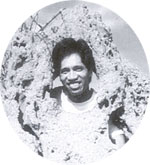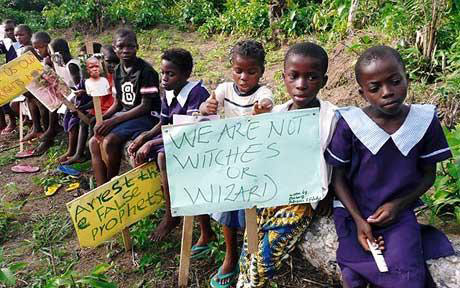‘Expectant Faith’ And Sincere Prayer
By Fr Joseph Panabang SVD
Our regular readers are more familiar with the author as ‘Joeker Pinoy’. He is from Gaang, a small village in Barangay Dangoy in the municipality of Lubuagan in the landlocked province of Kalinga in northern Luzon. The former province of Kalinga-Apayao became two separate provinces in 1995.I boarded air-conditioned OA Travel and Tour bus no AS54392H in Accra, capital of Ghana, bound for Techiman on 29 October 2007.
 Just a few minutes before we left at 9:45 in the evening, a stocky man in a red T-shirt standing in the center aisle, requested in full confidence all passengers to be silent. Then he started praying so fervently in a plethora of words that I could feel everyone was deeply moved. After a lengthy prayer, he finally ended, looking from the back to the front seats and again from the front to the back seats, obviously expecting donations or ‘love offerings’. Seeing no action, he reluctantly turned toward the door with a rather long face. ‘Did he really intend to pray for us or did he have an ulterior motive?’ I asked myself, thinking that the man had cut a somewhat pathetic figure.
Just a few minutes before we left at 9:45 in the evening, a stocky man in a red T-shirt standing in the center aisle, requested in full confidence all passengers to be silent. Then he started praying so fervently in a plethora of words that I could feel everyone was deeply moved. After a lengthy prayer, he finally ended, looking from the back to the front seats and again from the front to the back seats, obviously expecting donations or ‘love offerings’. Seeing no action, he reluctantly turned toward the door with a rather long face. ‘Did he really intend to pray for us or did he have an ulterior motive?’ I asked myself, thinking that the man had cut a somewhat pathetic figure. Almost the whole night we were entertained with two video shows interspersed with blaring local music. The first was Abro ne Beyifie (‘Wickedness and Witches/Wizards’). The plot was an interesting confrontation between witches and wizards on one side and good Christians on the other.

The movie ended in a stalemate, illustrating one of the most quoted Ghanaian proverbs: Obra ye oko (‘Life is war’), meaning life is a continual conflict between good and evil in the world and in ourselves. Perhaps we can add the words of the late Scottish Presbyterian Scripture scholar, William Barclay: ‘Between God and that which is anti–God’. In that sense, practically every individual is a ‘walking civil war’.
As if to show that good takes the upper hand, the second movie, Nyame Nipa (‘Children of God’), was full of lofty religious discourses by a so-called sectarian priest and charismatic leaders with a sure-fire gift of discernment. But once again wizards suddenly intruded, bringing the story to the same ending as the first – an inconclusive outcome and an indecisive ‘victory’ for both.
Just a few kilometers before Techiman, at 5:55 in the morning, a middle-aged woman seated opposite me gently stood up and with eyes closed, hands upraised and heart pounding, suddenly exploded in glorious prayer thanking God for our safety. She was so focused, alive and vibrant that at the end of her prayer, unbounded joy and glory could be seen radiating from her face like marks of victory. Silently and slowly but contentedly she sat back giving no impression of expecting anything material at all in return. ‘Wow, after all, good always wins in the end no matter how the devils may seem to be winning the day’, I quipped.
Both persons who prayed voluntarily started without making the Sign of the Cross, but that’s another story.
You may write Fr Joseph Panabang SVD at PO Box 55, Osonson, ASESEWA, E/R, GHANA.
